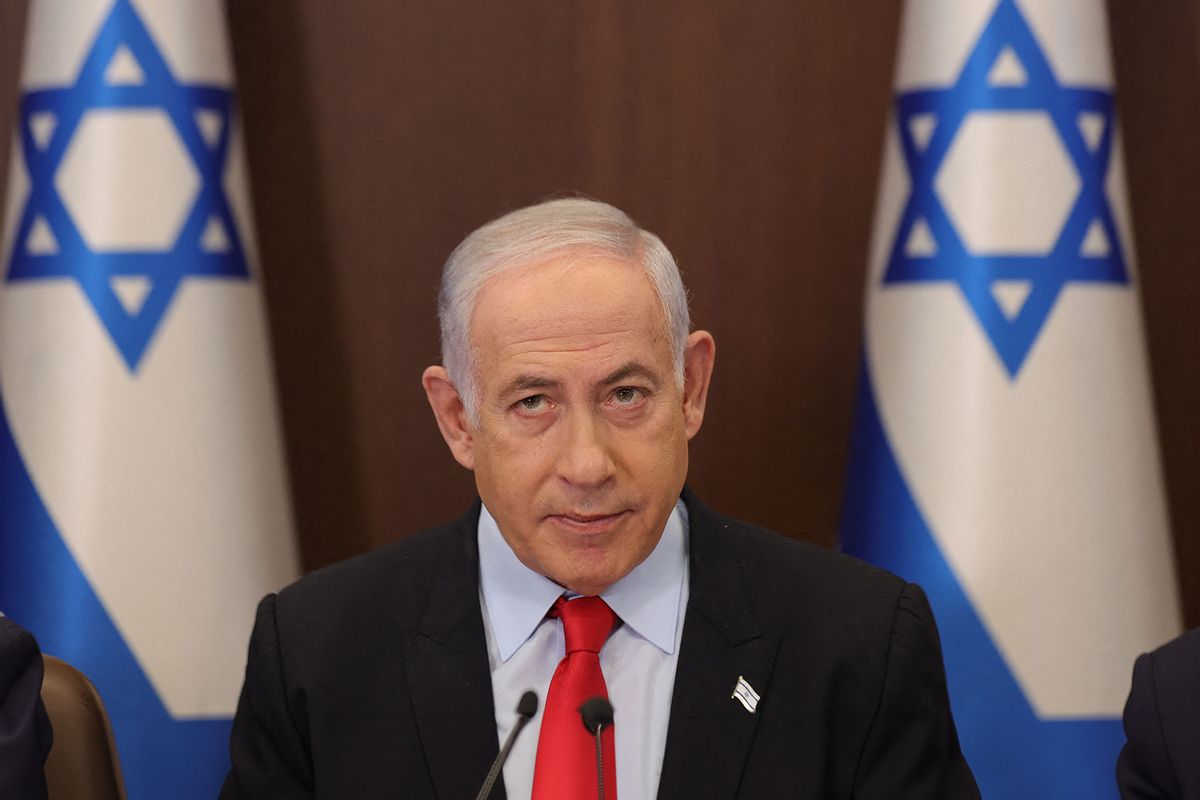Jake Johnson reports in Salon, one of the first entirely digital major media outlets, with journalism distributed across Salon.com, Salon TV, social media, news platforms, email newsletters and mobile apps, that the United States, Israel's top arms supplier, has said it would oppose a Rafah assault without a credible plan to evacuate civilians from the city. Humanitarian groups and analysts have said such a plan is impossible because there is no genuinely safe place for Gazans to go. Israeli forces have repeatedly attacked so-called "safe zones" and designated routes Palestinians have used to flee in compliance with past IDF orders.
Jan Egeland, secretary-general of the Norwegian Refugee Council, comments on Israel's military offensive in Rafah.
"Israel's military offensive in Rafah could lead to the deadliest phase of this conflict, inflicting horrific suffering on approximately 1.4 million displaced civilians in the area,"
"The relocation orders issued by Israel today to thousands of Gazans, directing them to move to Al-Mawasi, are beyond alarming. The area is already overstretched and devoid of vital services. It lacks the capacity to house the number of people currently seeking refuge in Rafah, with no assurances of safety, proper accommodation, or return once hostilities end for those forced to relocate."
"The absence of these fundamental guarantees of safety and return, as required by international humanitarian law, qualifies Israel's relocation directives as forcible transfer, amounting to a serious violation of international law," Egeland said. "Any Israeli military operation in Rafah—which has become the largest cluster of displacement camps in the world—will cause potential mass atrocities." (Johnson, n.d.)
An article in the Economist raises questions of war crimes that may be committed by Israel in areas of discrimination between civilians and combatants and the proportionate use of force.
Those appalled by the suffering in Gaza may argue that genocide was the only charge that could be brought, because the ICJ has no jurisdiction over other war crimes. Yet the focus on an implausible crime diverts attention from the possibility that Israel is breaching the laws of war. These require Israel to distinguish between civilians and combatants and to minimise civilian casualties by being proportionate in the use of force.
The death toll of women and children raises grave doubts over whether Israel is meeting these obligations. It may also be failing to meet its duty under the Geneva Convention to provide medicine and food to civilians in the areas it occupies. As Gaza nears famine, its people do not need grandstanding, they need food. Israel’s leaders need to realise that if they block supplies, they will be held accountable by the court of public opinion—the only court available. (Charging Israel With Genocide Makes a Mockery of the ICJ, 2024)
Alexander Ward, Lara Seligman, and Erin Banco report for Politico that the US fears Israel is speeding up the Rafah invasion timeline.
The events present a precarious moment for Biden, who has repeatedly urged Israel to refrain from a full-scale invasion of Rafah without a comprehensive civilian protection plan in place. He faces the possibility of having to more openly break with Netanyahu, which would involve insisting he pull back from sending thousands of Israeli soldiers into a treacherous war zone where about 3,000 Hamas fighters hide in a sprawling tunnel network.
Defense Secretary Lloyd Austin spoke with his Israeli counterpart, Minister of Defense Yoav Gallant, on Sunday after Hamas fired 10 projectiles from the area adjacent to the Rafah crossing, toward the Kerem Shalom humanitarian crossing, according to an Israeli readout of the call.
President Joe Biden spoke with Prime Minister Benjamin Netanyahu on Monday in a quickly scheduled call, National Security Council spokesperson Adrienne Watson confirmed, a sign the White House moved swiftly to get a grasp of the situation.
“We continue to believe that a hostage deal is the best way to preserve the lives of the hostages, and avoid an invasion of Rafah, where more than a million people are sheltering. Those talks are ongoing now,” NSC spokesperson Watson said.
Prime Minister Benjamin Netanyahu delivered a fiery address Sunday marking Israel’s Holocaust memorial day, vowing that his nation would move forward with plans to militarily defeat Hamas with or without international support: “If Israel is forced to stand alone, Israel will stand alone.” (Ward et al., n.d.)
If Israel is dangerously close to violations of humanitarian law and demonstrations in the United States, in an election year, raise concerns about Biden’s policy on the war, the restriction of military and financial aid to Israel may be a necessary political and humanitarian option especially if the Rafah incursion risks allied support for Israel.
References
Charging Israel with genocide makes a mockery of the ICJ. (2024, January 18). The Economist. Retrieved May 6, 2024, from https://www.economist.com/leaders/2024/01/18/charging-israel-with-genocide-makes-a-mockery-of-the-icj
Johnson, J. (n.d.). Israel defies US, begins forced evacuation of Rafah as advocates warn there’s “nowhere safe to go”. Salon. Retrieved May 7, 2024, from https://www.salon.com/2024/05/06/israel-defies-us-begins-forced-evacuation-of-rafah-as-advocates-warn-theres-nowhere-safe-to-go_partner/
Ward, A., Seligman, L., & Banoc, E. (n.d.). US fears Israel speeding up Rafah invasion timeline after deadly Hamas attack. Politico. Retrieved May 7, 2024, from https://www.politico.com/news/2024/05/06/us-israel-rafah-invasion-hamas-attack-00156256

No comments:
Post a Comment